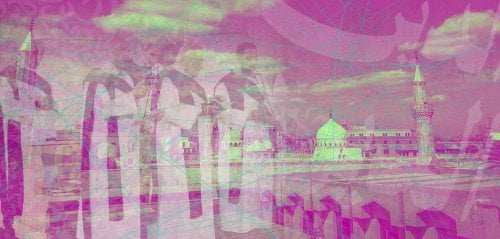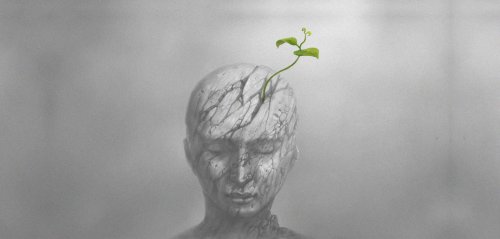I grew up in a region dominated by conflicting ideologies, deadly conflicts, and authoritarian governments. We made many blunders that shouldn’t have been made, so we lagged on the path of civilization. Despite all this, since the 1940s, it has been engrained in the collective mind that we are united in being citizens of Arab states, with strong ties and a common national security, So in order to defend and safeguard ourselves, we struck an agreement that states, inter alia, that an attack on one nation constitutes an attack on us all. The uniting goal was to end colonialism and liberate Palestine.
We succeeded in getting rid of colonialism, at least in its direct form, but we failed in dealing with the Palestinian cause, despite having battled several wars for Palestine, a nation critical for our Arab national security.
The issue of ethnic and religious identities, or the status of minorities present in Arab-majority countries, wasn’t subject of a community dialogue or public discourse in the past. Perhaps the nature of the systems of governance in most Arab countries did not allow this, and perhaps this pluralism also had no significant impact on our ability and our desire for coexistence, whether we are a majority or a minority.
The scene dramatically changed several decades ago, and problems of identity began to surface, changing many of the concepts established within our conscience regarding who we are; it has now become the norm for some to say that there is no such thing as an Arab world, but rather that we are a region inhabited by peoples with different identities, united by our use of the Arabic language.
A group of “Islamists” are now promoting the idea that our identity is only Islam, before being Arab, or anything else. The commonly used term Arab Maghreb to refer to the Western parts of the Arab world is now challenged since a large number of its inhabitants are Amazigh, and not Arab.
Recently, we are hearing voices stating that our real opponent is Shiite Iran, on account of its regional ambitions, and not Israel, which has devoured most of Palestine – altering the priorities in the minds of many.
Arab countries began to shape their foreign policies and vision for their security with the above in mind, and the more the antagonism with Iran increased, the warmer the relations with Israel became. In parallel, some began to focus on the fact that the civilization of Egypt was essentially a Pharaonic civilization in the first place, before it turned Arab or Muslim.
But what is sad about all of this, or the outcome of this, is that we, as countries and peoples, have gradually grown apart from one another, turning into adversaries, so much so that almost all of our wars have become civil wars where we direct our anger and our helplessness against ourselves in a tragic, bloody, heart-wrenching scene.
Recently, we are hearing voices stating that our real opponent is Shiite Iran, on account of its regional ambitions, and not Israel, which has devoured most of Palestine
What is happening today in terms of the disintegration of our collective identity as Arabs united by a common culture and history, has become, in my opinion, an existential threat to our present and future as nations and peoples.
Relinquishing an important component of our identity is the first step towards fragmentation, polarization, and the beginning of the end of many countries in the region in their present form, I see this happening before our eyes on a daily basis.
Peoples and nations who selectively look at their past are people who are not confident about their present, and unable to shape their future.
Those who began to question Arab identity - whether with good intentions, or otherwise - have been able to imprint in the minds of many the idea that it is not possible to combine the components of identity, and that we have to choose between them; so if you are a Muslim, you shouldn’t give too much attention or regard to your Arab identity, which could lessen the role of Islam in your life.
If you are from a non-Arab heritage, then you shouldn’t mix your culture with Arab culture. It is without a doubt that a large part of this misconception comes from the practices of many Arab countries, which actively obliterated pluralism, and did not recognize diversity, be it religious, ethnic, social, or linguistic.
Today, identity - along with its components - has become a complex issue due to the unprecedented globalization that has greatly affected ethnic, traditional, racial, and linguistic identities.
It is rare to find a person without the presence of “modifications” in his original identity. For instance, he would have either married someone that differs from him in sect or belief; his son would have obtained another nationality from working abroad; he would have spent most of his life working outside his homeland and dealt with different cultures; or he would normally speak in a language that isn’t his native language on account of his work….
Identity has become complex and differs from one person to another, due to the increased mixing between peoples and the mobility between cultures and civilizations.
In our contemporary world, there is an identity that unites us as human beings. It is based on our commitment to common values, regardless of our belief, creed, race, or geographical location, and it is the core of the identity of human beings; There are many additional components that complement identity, for instance, there is religious identity, which include billions of people, then there is ethnic identity, such as Han Chinese and Arabs, which encompass hundreds of millions, and there are of course national identities which are based on citizenship and nationality.
Does this mean that we have to choose between these components? Of course not, we just have to understand that there is no conflict or contradiction between the components that make up the identity of every person: affiliation to my country (nationality) must not conflict with my faith, my race, my mother tongue, or my affiliation to humanity as a whole. As is the human custom, every person is keen on having his first and foremost affiliation and loyalty to his country and homeland, which constitutes his past, present and future, and that his homeland remains at the forefront when it comes to cultural progress and advancement in all its forms.
I return to our Arab identifying majority region to pose a primary question: Is it better for me as a citizen, or as a people in the Arab region, to work independently, or work in close partnership with those that I share many ties with, when it comes to culture, language, history, and geography?
The whole world is moving in this direction, and sees the benefits of large groups and gatherings - from the European Union, to the African Union, the ASEAN countries, and the Organization of American States (OAS), etc - is it not wise and prudent to do the same in the Arab countries, in order to maximize our soft and hard power and build strengths in science, technology, and defense among others? Why do we give up our identity voluntarily and without reason?
If the whole world is moving in this direction and sees the benefits of large gatherings - the EU, African Union, ASEAN countries, the OAS, etc - is it not wise to do the same in Arab countries, maximizing our soft and hard power?
We are nations with more similarities than any other region: A majority identifies as Arab, we all speak Arabic, most of us share the same faith, we are geographically close and we are tied by a common history and a shared future.
Under these circumstances, the lack of close cooperation and integration in all the political, security, economic, cultural and social fields is like swimming against the current, and sometimes like moving backwards; there is a lesson to be learned from the suppression of the Palestinian cause and the violation of our regional security, as a result of the lack of a common Arab policy.
Holding on to our Arabism does not mean that we do not respect pluralism in all its forms or the complete equality in the rights and freedoms for all. On the contrary, we must realize that protecting minorities from the tyranny of the majority is one of the pillars of stability and a democracy based on freedom, justice, equality and respect for human rights. I conclude these words by saying: The absence of these societal values may well be what led us to our current situation.
*The views and opinions expressed in this article are those of the author’s and do not necessarily reflect the official policy or position of Raseef22
Raseef22 is a not for profit entity. Our focus is on quality journalism. Every contribution to the NasRaseef membership goes directly towards journalism production. We stand independent, not accepting corporate sponsorships, sponsored content or political funding.
Support our mission to keep Raseef22 available to all readers by clicking here!
Interested in writing with us? Check our pitch process here!








